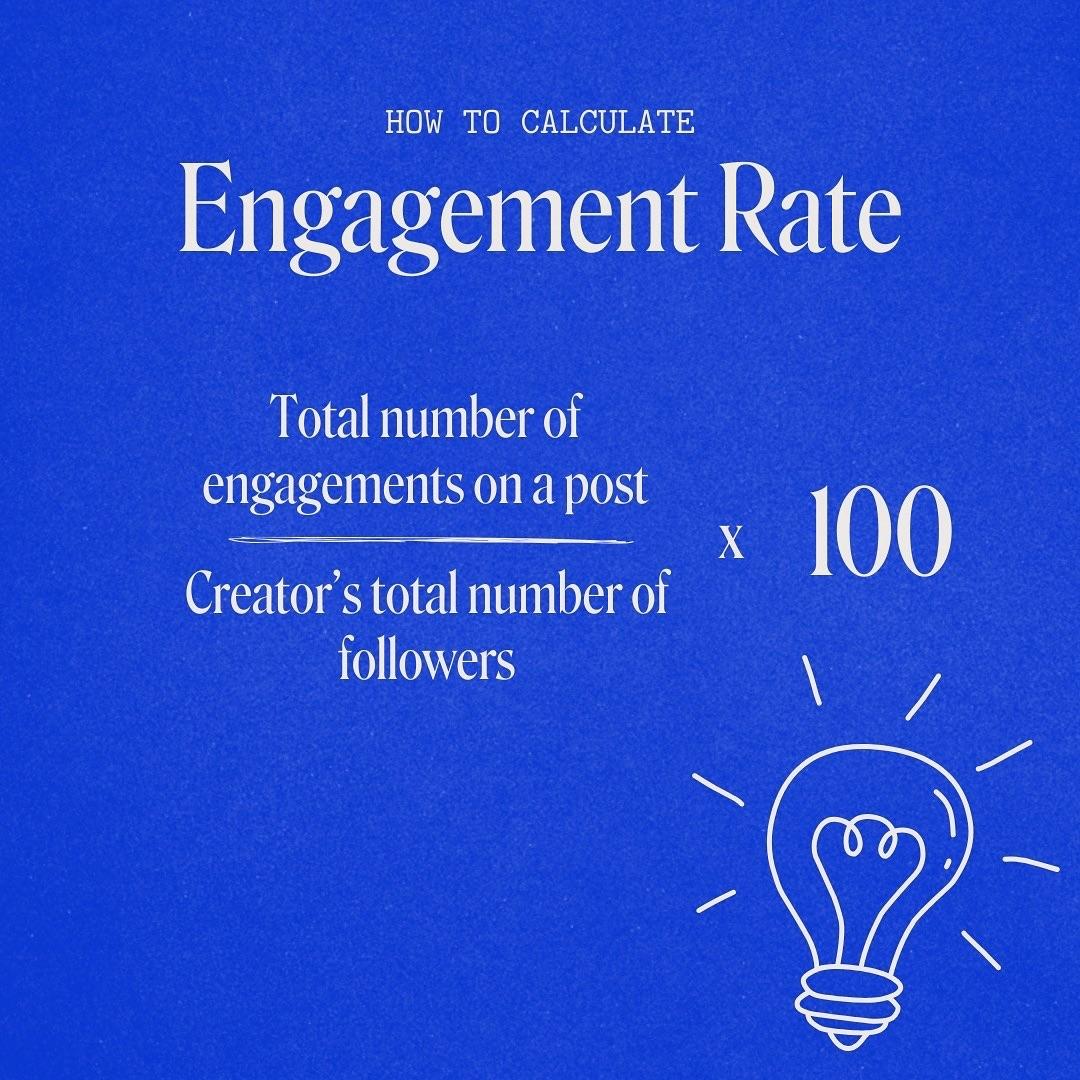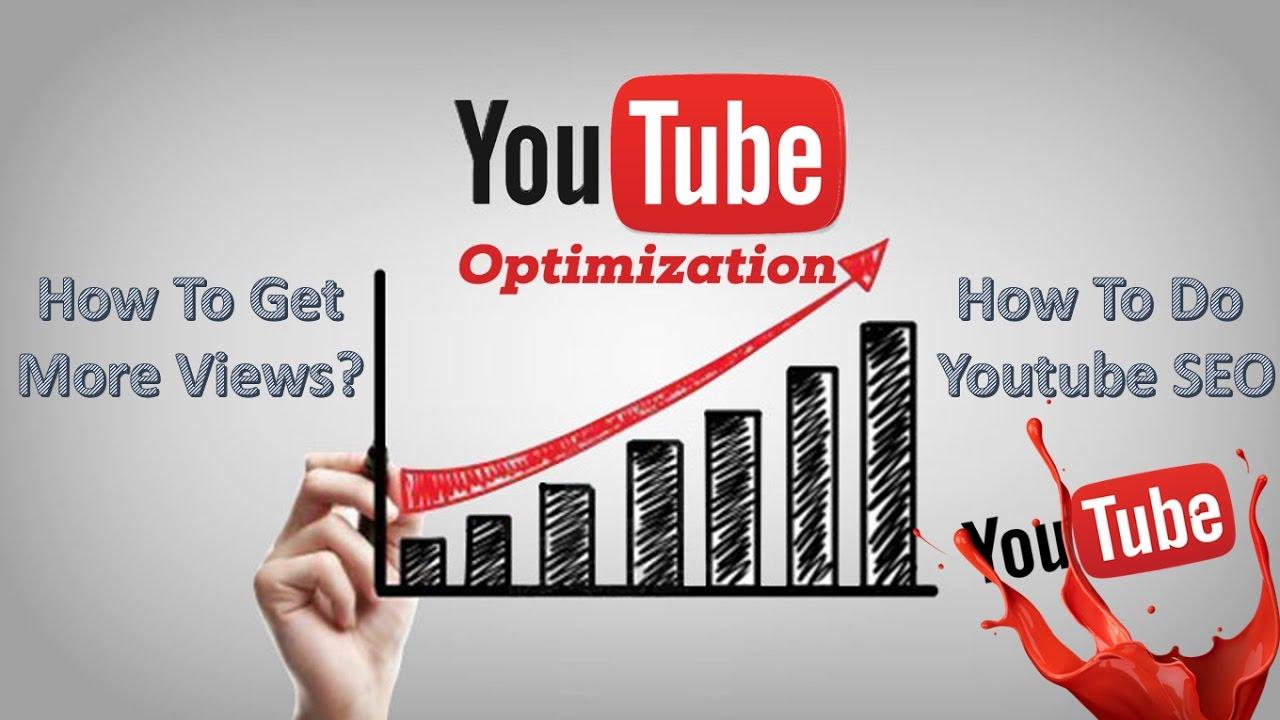
Title: YouTube SEO: How to Get Your Videos to the Top of Search Results
Hey there, aspiring YouTuber! If you’ve ever hit ”upload” on a video only to watch it sink into the depths of the platform, you’re not alone. With millions of videos vying for attention, getting your content noticed can feel like shouting into a void. But what if I told you that there’s a way to boost your visibility and attract viewers like bees to honey? Welcome to the world of YouTube SEO!
In this article, we’re diving into the essentials of optimizing your videos so they rise to the top of search results. Think of SEO as your secret weapon—a toolkit of strategies designed to enhance your video’s discoverability. Whether you’re a seasoned creator or just starting out, mastering these techniques can help your content reach the audience it deserves. So, grab a notepad, and let’s unlock the secrets of YouTube SEO together! Your path to video stardom starts here.
Understanding YouTube SEO and Its Importance
In the vast ocean of content on YouTube, standing out requires more than just creativity and engaging visuals. Understanding the intricacies of SEO specific to YouTube can significantly elevate your video’s visibility and, ultimately, its success. By mastering this art, you can ensure that your content reaches its intended audience and garners the attention it deserves.
At its core, YouTube SEO revolves around optimizing your videos to align with both user search intent and the algorithms that govern the platform. Key elements that play a vital role in this process include:
- Keyword Research: Identifying the right keywords is crucial. Use tools like Google Keyword Planner or TubeBuddy to find popular search queries in your niche.
- Video Title: Create compelling, keyword-rich titles that not only describe your content but also entice viewers to click.
- Description: Write detailed descriptions that include relevant keywords. This helps YouTube understand the content of your video and improves your chances of being suggested.
- Tags: Utilize tags wisely. Incorporate a mix of broad and specific tags to help categorize your video.
- Thumbnails: Custom thumbnails that are visually appealing can vastly improve your click-through rate.
Equally important is the engagement factor. YouTube’s algorithm rewards videos that keep viewers watching, liking, and commenting. Therefore, focusing on viewer retention is paramount. Consider the following tactics to enhance engagement:
- Hook Viewers Early: Capture interest within the first few seconds to prevent drop-offs.
- Encourage Interaction: Ask viewers to comment, like, and share. Pose questions or create polls to facilitate discussions.
- Consistent Posting Schedule: Regular uploads can keep your audience engaged and looking forward to new content.
| SEO Element | Benefit |
|---|---|
| Keyword Optimization | Improves searchability and relevance. |
| Engaging Titles | Increases click-through rates. |
| Video Length | Longer videos can boost watch time but should maintain quality. |
| Calls to Action | Promotes engagement and interaction. |
Lastly, don’t underestimate the power of analytics. Monitoring your video performance through YouTube Analytics can provide insights into what works and what doesn’t. Pay attention to metrics like watch time, traffic sources, and audience demographics. This data can inform your future content strategies and help refine your approach to SEO.
understanding YouTube SEO is not just beneficial; it’s essential for anyone looking to make their mark on the platform. By investing time in optimizing your videos and engaging with your audience, you set the stage for greater visibility, increased views, and, ultimately, enhanced success on YouTube.

The Power of Keywords: Finding the Right Terms
Choosing the right keywords is like finding a treasure map leading to your video’s success. It’s all about understanding what your audience is searching for and aligning your content with those queries. When you tap into the power of keywords, you can enhance your visibility and engagement, making your videos more likely to appear at the top of search results.
Start by brainstorming a list of potential keywords related to your video content. Consider using tools like Google Keyword Planner, Ahrefs, or even YouTube’s own search suggestions to discover what terms are trending. Focus on the following aspects when selecting your keywords:
- Relevance: Ensure that the keywords reflect the actual content of your video.
- Search Volume: Look for terms that a significant number of users are searching for.
- Competition: Choose keywords that strike a balance between high search volume and manageable competition.
Once you have a solid list, it’s time to analyze and refine your choices. Consider grouping your keywords into primary and secondary categories. Primary keywords are the main terms you want to rank for, while secondary keywords support your content and help capture related searches.
Creating a keyword map can be an effective strategy. This is a visual representation of your keywords organized according to their relevance and search intent. Here’s a simple example:
| Keyword Type | Example Keywords | Search Intent |
|---|---|---|
| Primary | YouTube SEO | Informational |
| Secondary | Improve video ranking, YouTube tips | Transactional |
Incorporating these keywords naturally into your video title, description, and tags is crucial. You want to create a compelling narrative that not only attracts viewers but also keeps them engaged. For instance, a title that includes your primary keyword while also piquing curiosity will encourage clicks. Consider these tips:
- Use your primary keyword at the beginning of your title.
- Write an engaging description while embedding both primary and secondary keywords.
- Utilize tags wisely by including a mix of keywords that cover broad and niche topics.
don’t forget to monitor your performance. Use YouTube Analytics to see which keywords are driving traffic to your videos. This feedback will help you adjust your strategy over time. Remember, keyword optimization is not a one-time task; it’s an ongoing process that can evolve with changing trends and viewer interests.
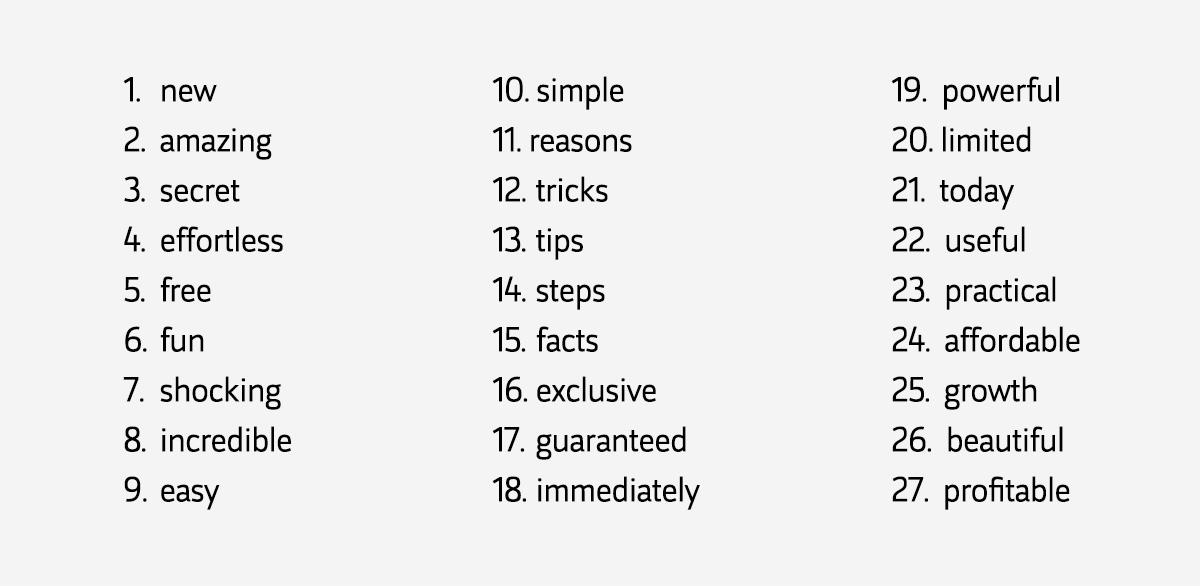
Crafting Captivating Titles That Boost Click-Through Rates
When it comes to YouTube SEO, the importance of a captivating title cannot be overstated. A well-crafted title is not just a label; it’s your first impression, a promise of the value your video delivers. To entice viewers, consider these essential elements:
- Clarity: Your title should clearly convey what the video is about. Avoid vague language that might confuse potential viewers.
- Keywords: Incorporate relevant keywords that your audience is likely to search for. This boosts your visibility in search results.
- Emotion: Use powerful words that evoke curiosity or excitement. Titles that trigger an emotional response can significantly enhance click-through rates.
- Length: Aim for a title length that’s easily digestible. Typically, titles that are between 60-70 characters work best for visibility.
Another effective strategy is to pose a question. Questions are inherently engaging and encourage viewers to click to find the answer. For instance, instead of a straightforward title like “Tips for Beginner Gardeners,” you could try “Are You Making These Common Mistakes in Your Garden?” This approach not only piques curiosity but also sets up the expectation that your video will provide valuable insights.
In addition, consider using numbers in your titles. Lists and how-to guides often attract attention because they promise structured, easy-to-digest content. Think “5 Simple SEO Tips to Skyrocket Your YouTube Views” instead of “SEO Tips for YouTube.” Numbers make it clear what the viewer can expect and can make your content feel more accessible.
| Title Example | Click-Through Rate Potential |
|---|---|
| How to Optimize Your YouTube Videos for SEO | High |
| The Secret to Boosting YouTube Engagement | Medium |
| Top 10 YouTube SEO Tips | High |
| Why Your YouTube Channel Isn’t Growing | Medium |
Lastly, don’t underestimate the power of intrigue. A touch of mystery can compel viewers to click. Titles like “The Surprising Truth About YouTube SEO” or “What Most Creators Don’t Know About Video Rankings” can create a sense of urgency and a desire to learn more. Just ensure that the content of your video lives up to the promise of your title; otherwise, you risk disappointing your audience.
remember that the art of titling is a blend of creativity and strategy. Experiment with different styles, analyze what resonates with your audience, and continuously refine your approach. With the right titles, you can dramatically improve your click-through rates, leading to greater visibility and success on YouTube.
Writing Descriptions That Tell a Story and Engage Viewers
When crafting descriptions for your YouTube videos, remember that every word is an opportunity to pull viewers into your narrative. Instead of simply listing what your video covers, weave a story that ignites curiosity and invites engagement. Imagine your viewer as a friend who you’re eager to share an exciting tale with. Consider this: what makes your content unique? What journey will your audience embark on when they click play? The answer lies in how you frame your description.
Start with a hook that captures attention. This could be a thought-provoking question, a startling fact, or an intriguing statement. For example:
- “Have you ever wondered how the smallest changes can lead to monumental shifts in your life?”
- “What if I told you that mastering just one skill could unlock your creative potential?”
Next, guide your audience through the story arc of your video. Briefly outline the themes and key points without giving everything away. This not only piques interest but also sets expectations. Try using engaging language and vivid imagery; transport your viewer into the experience you are sharing.
Don’t forget to include keywords naturally in your descriptions. This is crucial for SEO purposes, but it doesn’t have to feel forced or mechanical. Integrate them as part of your storytelling. For instance, if your video is about cooking healthy meals, instead of just stating “healthy meals,” you might say, ”Discover how to whip up delicious, healthy meals that not only taste great but also fuel your body.” This way, you’re optimizing for search while still captivating your audience.
Utilize bullet points to highlight what viewers will learn or experience in the video. This format is visually appealing and allows for quick scanning. Here’s a format you can use:
- Step-by-step guidance on healthy meal prep
- Tips for finding the best ingredients
- Time-saving kitchen hacks
Additionally, consider crafting a call-to-action that encourages viewers to engage with your content. Invite them to comment, share their thoughts, or subscribe for more. You might say something like, “I’d love to hear your thoughts on these tips in the comments below!” This not only boosts interaction but also builds a community around your channel.
Lastly, don’t underestimate the power of formatting. Use bold text for key phrases, and consider adding links to related content or social media to create a connected experience for your audience. This can be particularly effective in retaining viewership across your channel.
| Video Element | Description Strategy |
|---|---|
| Hook | Intriguing question or statement to grab attention |
| Story Arc | Outline themes without giving everything away |
| Keywords | Integrate naturally within the story |
| Bullet Points | Highlight key learnings for easy scanning |
| Call-to-Action | Encourage comments and engagement |
Tags: What They Are and How to Use Them Effectively
When it comes to YouTube SEO, tags play a crucial role in helping your videos achieve visibility in a sea of content. Tags are keywords or phrases that describe your video’s content. They help YouTube’s algorithm understand what your video is about, making it easier for users to discover your content through search results and recommendations.
Using tags effectively can significantly improve your video’s chances of ranking higher. Here are some best practices for utilizing tags:
- Be specific: Use precise tags that accurately reflect your video’s subject matter. Instead of general terms like “cooking,” consider using “vegan pasta recipe” or “quick weeknight dinners.”
- Include variations: Think of different phrases or synonyms viewers might use to search for your content. This can include long-tail keywords that are more niche.
- Mix broad and specific tags: Combine broad tags with specific ones. For example, if your video is about “digital marketing,” you might also use specific tags like “SEO strategies” or “content marketing tips.”
- Limit your tags: While it can be tempting to use as many tags as possible, focus on 5-10 well-chosen tags. Too many tags can dilute the effectiveness of your SEO efforts.
Another important aspect to consider is the order of your tags. YouTube places more emphasis on the first few tags, so make sure your most important keywords are at the top. This helps the algorithm prioritize your video for relevant searches.
To make the most of your tagging strategy, regularly analyze the performance of your videos. Look at how different tags impact views and engagement. You can use YouTube Analytics to evaluate which tags lead to higher visibility and adjust your strategy accordingly.
Here’s a quick reference table to summarize effective tagging strategies:
| Strategy | Description |
|---|---|
| Specific Tags | Use precise keywords that represent your video’s topic. |
| Variations | Incorporate synonyms and related terms to capture diverse searches. |
| Mix Tags | Combine broad and niche tags for a balanced approach. |
| Tag Limit | Keep it concise; focus on 5-10 impactful tags. |
| Order Matters | Prioritize your most important tags at the beginning. |
By taking the time to craft a thoughtful tagging strategy, you can enhance the discoverability of your videos, attract the right audience, and ultimately boost your channel’s growth. Remember, tags are not just an afterthought; they are a powerful tool in your YouTube SEO arsenal.
Thumbnail Strategies to Catch the Eye and Increase Clicks
Creating eye-catching thumbnails is one of the most effective strategies to attract viewers to your YouTube videos. A powerful thumbnail can be the difference between a viewer scrolling past your video or clicking on it. Here’s how to design thumbnails that grab attention and boost click-through rates.
First and foremost, focus on high-quality images. Use clear, high-resolution visuals that represent the content of your video. Avoid blurry or pixelated images, as they can deter potential viewers. Remember, your thumbnail serves as a mini advertisement for your video, so it should look professional and appealing.
Next, consider adding text overlays to your thumbnails. This can help convey the video’s message quickly. Use bold, legible fonts, and make sure the text contrasts well with the background. Aim for a compelling hook that piques curiosity, like:
- “5 Secrets You Didn’t Know About…”
- “How I Grew My Channel to 10K Subscribers!”
- “The Ultimate Guide to…”
Color choice is another crucial element. Bright, vibrant colors tend to stand out more in YouTube’s crowded interface. Use a combination of colors that complement each other, but also ensure they don’t clash. A well-thought-out color scheme can make your thumbnail pop and draw in clicks.
Incorporating brand elements can also bolster your visual strategy. If you have a logo, watermark, or specific color palette, include these in your thumbnails to build brand recognition. Consistency in your thumbnail design helps viewers immediately identify your content, which can lead to more clicks from returning viewers.
Don’t underestimate the power of emotion in your thumbnails. Faces showing strong emotions—like surprise, happiness, or curiosity—can significantly increase engagement. Aim to feature expressive faces that resonate with the video’s theme, as they create a connection with potential viewers.
Lastly, always test different designs. Use YouTube’s A/B testing features or simply change thumbnails after a week to see which version garners more clicks. By analyzing viewer behavior and engagement, you can refine your approach and continuously improve your thumbnails, ensuring they remain effective over time.
| Thumbnail Element | Importance |
|---|---|
| High-Quality Images | Attracts viewers and establishes professionalism |
| Text Overlays | Conveys the video message quickly |
| Vibrant Colors | Makes thumbnails stand out |
| Emotional Faces | Creates a connection with viewers |
| Brand Elements | Builds recognition and trust |
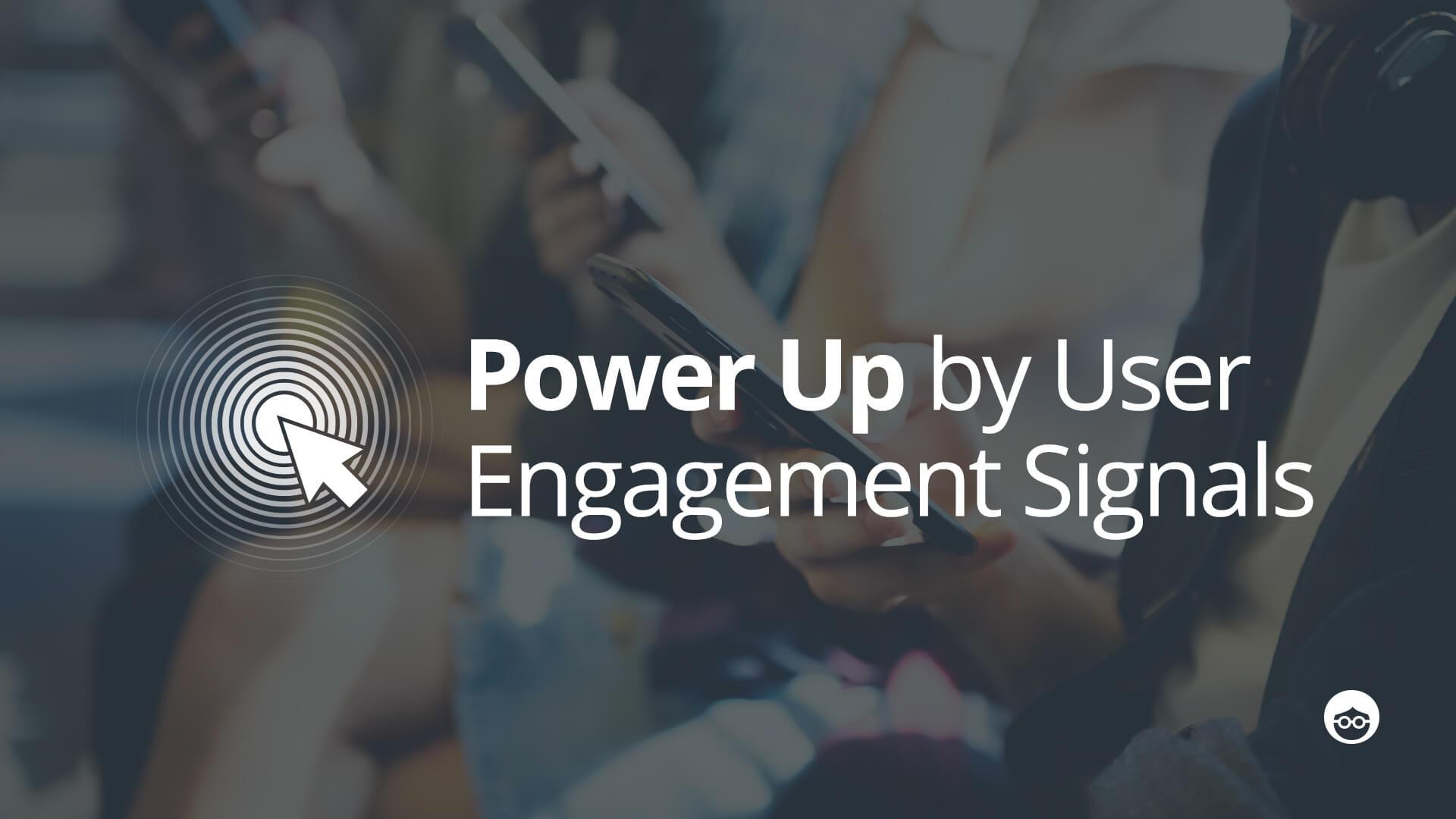
Engagement Signals: Likes, Comments, and Watch Time Matter
Engagement signals are vital indicators of how well your content resonates with viewers on YouTube. These metrics—likes, comments, and watch time—not only influence viewer perception but also play a crucial role in how the YouTube algorithm ranks your videos. Understanding and leveraging these signals can dramatically enhance your discoverability on the platform.
Let’s break down each of these elements:
- Likes: A simple click of the thumbs up can significantly boost your video’s visibility. It signals to YouTube that your content is engaging and worth promoting to a wider audience.
- Comments: Inviting viewers to share their thoughts not only fosters community but also encourages algorithmic favor. A higher comment count indicates to YouTube that your video is sparking discussions and interest.
- Watch Time: This is perhaps the most critical engagement signal. The longer viewers watch your videos, the more YouTube will promote them. Focus on creating captivating content that keeps viewers glued to their screens.
To maximize these engagement signals, consider the following strategies:
- Create Compelling Thumbnails: An eye-catching thumbnail can entice viewers to click on your video, setting the stage for increased watch time.
- Ask Questions: At the end of your videos, pose a question to your audience. This not only encourages comments but also invites viewers to engage with your content further.
- Deliver Value: Ensure your content provides value to your audience. Whether through entertainment, education, or inspiration, valuable content leads to higher engagement rates.
Engagement signals can also vary by niche. Here’s a quick comparison of typical engagement metrics across different content types:
| Content Type | Average Likes | Average Comments | Average Watch Time |
|---|---|---|---|
| Tutorials | 1,500 | 300 | 8 minutes |
| Vlogs | 800 | 150 | 6 minutes |
| Product Reviews | 2,000 | 500 | 10 minutes |
By understanding these metrics, you can tailor your content strategy to suit your audience better. Experiment with different formats, track your engagement signals, and make adjustments as needed. Remember, the key to rising through the YouTube ranks lies in creating a vibrant, interactive community around your content.
Ultimately, focusing on likes, comments, and watch time is not merely a tactic; it’s about building connections. When your viewers feel involved and appreciated, they are more likely to engage with your content, leading to a virtuous cycle of increased visibility and growth. Keep your audience at the heart of your strategy, and watch your channel flourish.
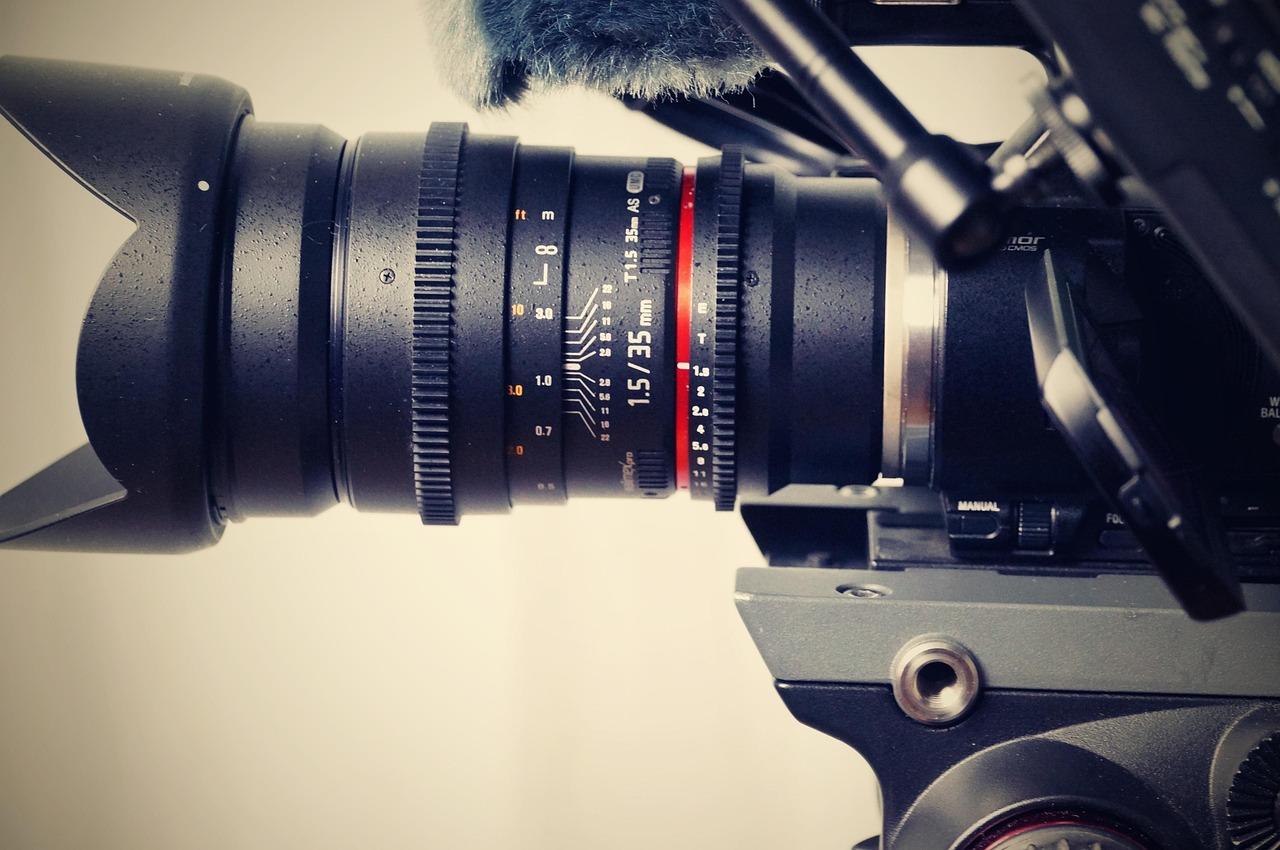
Optimizing Video Length for Maximum Viewer Retention
When it comes to engaging your audience on YouTube, the length of your videos plays a crucial role in maintaining viewer interest. Striking the right balance between thorough content and brevity can significantly impact your video’s performance. Here are some strategies to consider:
- Know Your Audience: Understanding who your viewers are and what they prefer is key. Check your analytics to see how long they typically stay engaged. This will guide you in determining optimal video length.
- Focus on Value: Every second counts, so ensure your content is packed with valuable information. Short, focused videos can sometimes outperform longer ones if they deliver the message effectively.
- Experiment with Formats: Consider different formats such as tutorials, vlogs, or interviews. Some formats naturally lend themselves to longer runtimes, while others benefit from being concise.
Studies suggest that the ideal video length for maximum viewer retention typically falls between 7 to 15 minutes. However, this can vary based on content type. For instance:
| Content Type | Recommended Length |
|---|---|
| Tutorials | 10-15 minutes |
| Vlogs | 5-10 minutes |
| Interviews | 15-20 minutes |
| Product Reviews | 8-12 minutes |
Utilizing hooks in the first few seconds is another effective way to engage viewers. Start with a compelling question or a quick teaser of what’s to come. This technique not only piques curiosity but also encourages viewers to stick around to find out more.
In addition, consider segmenting your content. Break your video into shorter, digestible parts. This not only keeps viewers engaged but also allows for easier navigation through timestamps. Make sure to mention these timestamps in your video description to improve user experience and retention.
Lastly, always analyze the performance of your videos after posting. Pay attention to metrics like average view duration and audience retention graphs. Use this data to continually refine your video length strategy, ensuring your content remains appealing and engaging.
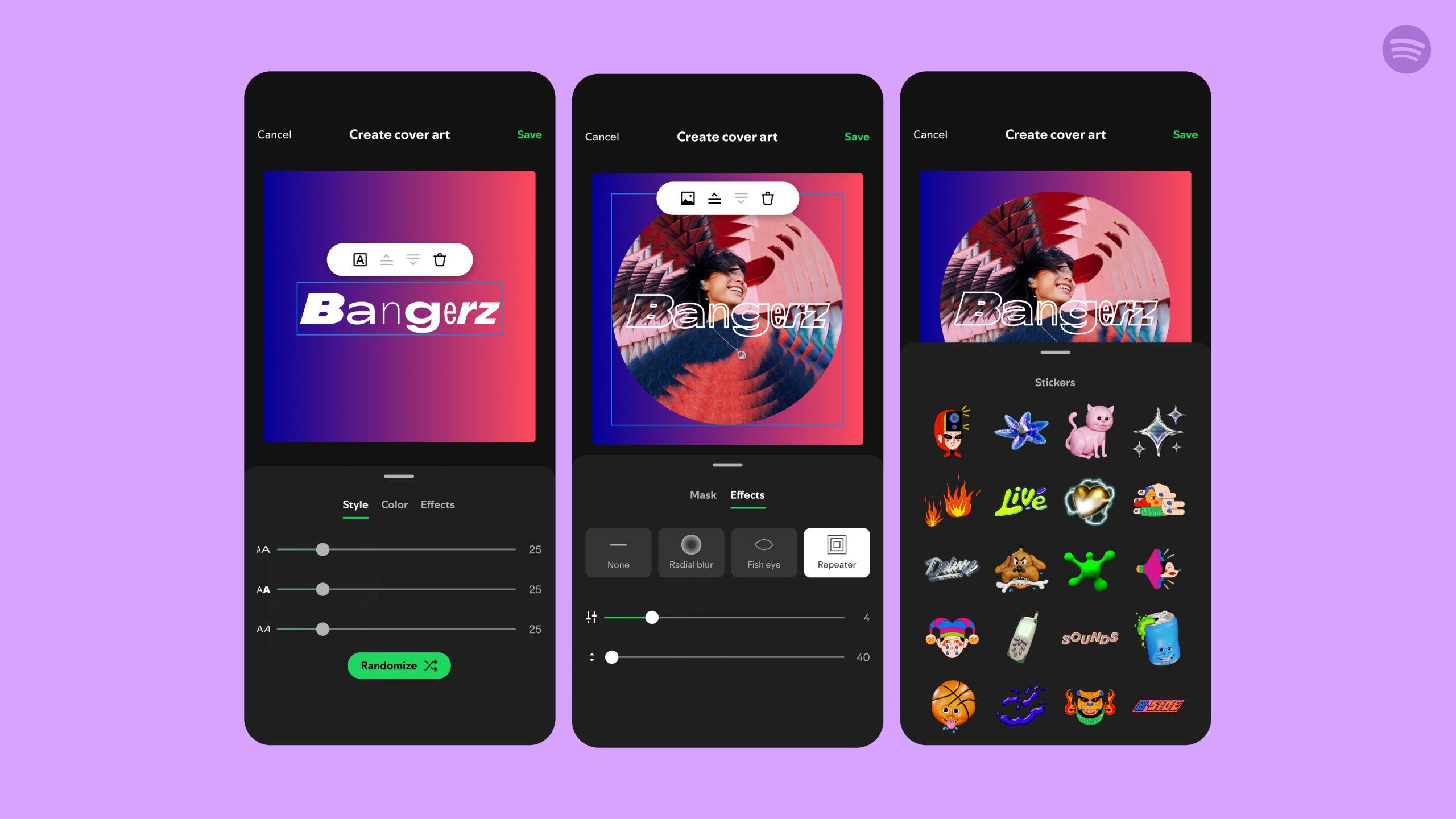
The Role of Playlists in Boosting Your Channel’s Visibility
Playlists are more than just a collection of videos; they are powerful tools for enhancing your channel’s visibility on YouTube. By organizing your content into themed playlists, you create a structured way for viewers to consume your videos, which can significantly impact watch time and engagement metrics.
One of the key benefits of using playlists is that they improve user experience. When viewers find a playlist that aligns with their interests, they are more likely to binge-watch multiple videos consecutively. This extended watch time signals to YouTube’s algorithm that your content is valuable, ultimately helping your videos rank higher in search results.
Moreover, playlists can boost discoverability in a few compelling ways:
- Increased Searchability: By incorporating relevant keywords into your playlist titles and descriptions, you enhance the chances of your playlists appearing in search results.
- Suggested Videos: Playlists can earn a spot in the “Up Next” section, leading viewers to your content without them needing to search for it actively.
- Channel Authority: A well-structured playlist can showcase your expertise on specific subjects, establishing authority and encouraging subscribers.
Creating engaging playlists isn’t just about grouping videos; it’s also about curating a narrative. Consider the following strategies to maximize your playlists:
- Thematic Consistency: Each playlist should revolve around a clear theme that resonates with your target audience.
- Call-to-Actions: Include compelling descriptions that invite viewers to watch all videos within the playlist.
- Regular Updates: Refresh your playlists frequently to keep them relevant and encourage repeat visits.
To take your playlists a step further, consider adding a custom thumbnail for each playlist. A visually appealing thumbnail can entice viewers to click, setting the stage for higher engagement rates. Make sure your thumbnails are consistent with your channel’s branding to maintain a cohesive look.
Lastly, don’t underestimate the power of promoting your playlists across social media and other platforms. Sharing your playlists can drive traffic from outside YouTube, further boosting your videos’ visibility and engagement.

Leveraging Social Media to Drive Traffic to Your Videos
Social media is a powerhouse for driving traffic to your videos, and tapping into its potential can significantly enhance your reach. To maximize engagement, consider the following strategies:
- Share Snippets: Create short, attention-grabbing clips from your videos to post on platforms like Instagram, TikTok, and Twitter. These snippets can entice viewers to click through to your full video.
- Engage with Your Audience: Respond to comments and messages, ask questions, and encourage discussions related to your video content. This interaction can foster a loyal community eager to support your channel.
- Use Hashtags Wisely: Research trending and relevant hashtags to improve visibility. Incorporating these hashtags can help your content reach audiences interested in specific topics.
- Collaborate with Influencers: Partnering with social media influencers can introduce your videos to their followers, expanding your audience significantly. Choose influencers who resonate with your content theme for best results.
Moreover, consider creating compelling visuals and graphics to accompany your video links. A well-designed thumbnail or promotional image can capture attention and encourage clicks. Make sure to adhere to platform-specific dimensions for optimal display.
Don’t forget about the power of storytelling! Craft engaging captions that resonate with your audience, providing context or a teaser that entices viewers to explore your video further. A strong narrative can make all the difference in piquing interest.
| Platform | Best Practices |
|---|---|
| Use eye-catching thumbnails and post during peak engagement times. | |
| Use concise, engaging text paired with relevant hashtags. | |
| Utilize Stories and Reels for sneak peeks and behind-the-scenes content. | |
| TikTok | Create trendy, relatable content that drives curiosity about your video. |
Utilizing analytics tools on these platforms can also inform your strategies. Monitor which types of posts drive the most traffic to your videos and adjust your approach accordingly. Understanding your audience’s preferences will allow you to fine-tune your content and maximize engagement.
don’t underestimate the power of cross-promotion. Share links to your videos across all your social media profiles, and encourage your audience to subscribe and share. The more visible your content becomes, the higher the chances of driving traffic and growing your channel organically.
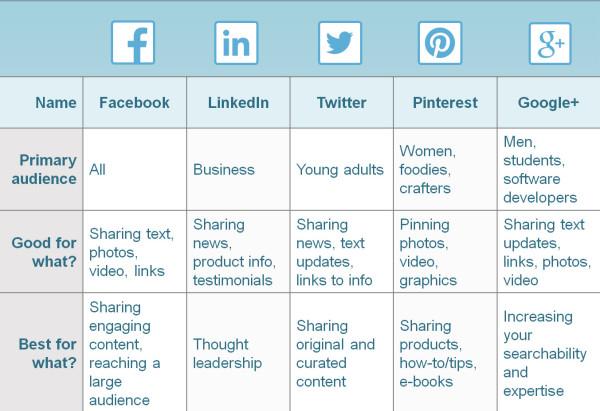
Consistency is Key: Creating a Posting Schedule
Establishing a regular posting schedule on YouTube is essential for maximizing your reach and engagement. When your audience knows when to expect new content, they are more likely to return to your channel, increasing your chances of ranking higher in search results. Here are some effective strategies to create a sustainable posting schedule:
- Determine Your Capacity: Assess how often you can realistically produce quality videos. Whether it’s weekly, bi-weekly, or monthly, consistency is what matters.
- Know Your Audience: Analyze when your audience is most active on the platform. Use YouTube Analytics to identify peak viewing times and tailor your schedule accordingly.
- Set Clear Goals: Decide what you want to achieve with your videos. Are you aiming for subscriber growth, increased watch time, or engagement? Your goals will help shape how often you publish.
- Create a Content Calendar: Plan ahead by mapping out your video ideas, filming dates, and upload deadlines. This will help keep your content organized and consistent.
Once you have your posting frequency established, stick to it as much as possible. However, remember that quality should always take precedence over quantity. A well-crafted video that provides value will resonate more with viewers than several rushed uploads. Here’s a simple table to help you visualize a potential posting schedule:
| Week | Video Topic | Upload Day |
|---|---|---|
| 1 | Understanding YouTube SEO | Monday |
| 2 | Keyword Research Techniques | Monday |
| 3 | Optimizing Video Descriptions | Monday |
| 4 | Engaging Thumbnails and Titles | Monday |
It’s also beneficial to review your schedule regularly. Track the performance of your videos and assess whether certain days yield better results than others. If you notice a trend, don’t hesitate to adjust your posting day to maximize visibility. Additionally, consider seasonal changes or special events that might influence your content calendar.
Engagement with your audience is vital, so don’t shy away from asking for feedback. Invite viewers to comment on what content they enjoy and what they want to see more of. This not only fosters community but also provides you with valuable insights that can shape your future video topics.
Ultimately, the goal of maintaining a consistent posting schedule is to build trust and reliability with your audience. When viewers can expect new content from you regularly, they are more likely to subscribe and engage with your videos, which in turn boosts your SEO efforts. So, map out your plan, stay committed, and watch your channel grow!

Analyzing Your Analytics: What the Numbers Really Mean
When diving into YouTube analytics, the numbers can seem overwhelming at first glance. However, each metric has its own story to tell and understanding them can be the key to elevating your content. Consider the following essential metrics and what they reveal about your video’s performance:
- Watch Time: This indicates how long viewers are staying engaged with your video. A higher watch time signals to YouTube’s algorithm that your content is valuable, potentially boosting your search ranking.
- Click-Through Rate (CTR): This percentage shows how often people click on your video after seeing the thumbnail. A low CTR may suggest your title or thumbnail isn’t appealing enough, while a high CTR indicates effective branding.
- Average View Duration: This metric tells you how long, on average, viewers watch your video. Keeping viewers engaged for longer can enhance your video’s ranking in search results.
- Audience Retention: This shows you where viewers are dropping off. Analyzing these points can help you understand what parts of your video are working and which need improvement.
To make sense of these metrics, it’s beneficial to compare them against your channel’s benchmarks. For example, if your average CTR is 3% but your niche standard is 5%, then it’s time to rethink your video titles and thumbnails. Here’s a simple table to visualize how your metrics stack up against the averages:
| Metric | Your Video | Niche Average | Status |
|---|---|---|---|
| Watch Time | 10 mins | 8 mins | Above Average |
| CTR | 3% | 5% | Needs Improvement |
| Average View Duration | 4 mins | 5 mins | Below Average |
| Audience Retention | 40% | 50% | Needs Improvement |
Once you’ve gathered and analyzed this data, it’s crucial to formulate an action plan. Here are some tailored strategies:
- Optimize Thumbnails: Test different designs and visuals to boost your CTR.
- Edit Content: If you notice drop-off points, consider trimming or re-editing those sections to maintain engagement.
- Create Playlists: Grouping similar videos can enhance watch time as viewers are more likely to continue watching related content.
- Engage with Your Audience: Encourage comments and interaction, as higher engagement can also signal quality to the algorithm.
understanding your analytics isn’t just about tracking numbers—it’s about leveraging that data to create better content. By focusing on the metrics that matter and continuously refining your approach, you can propel your videos to the top of search results and keep your audience coming back for more.
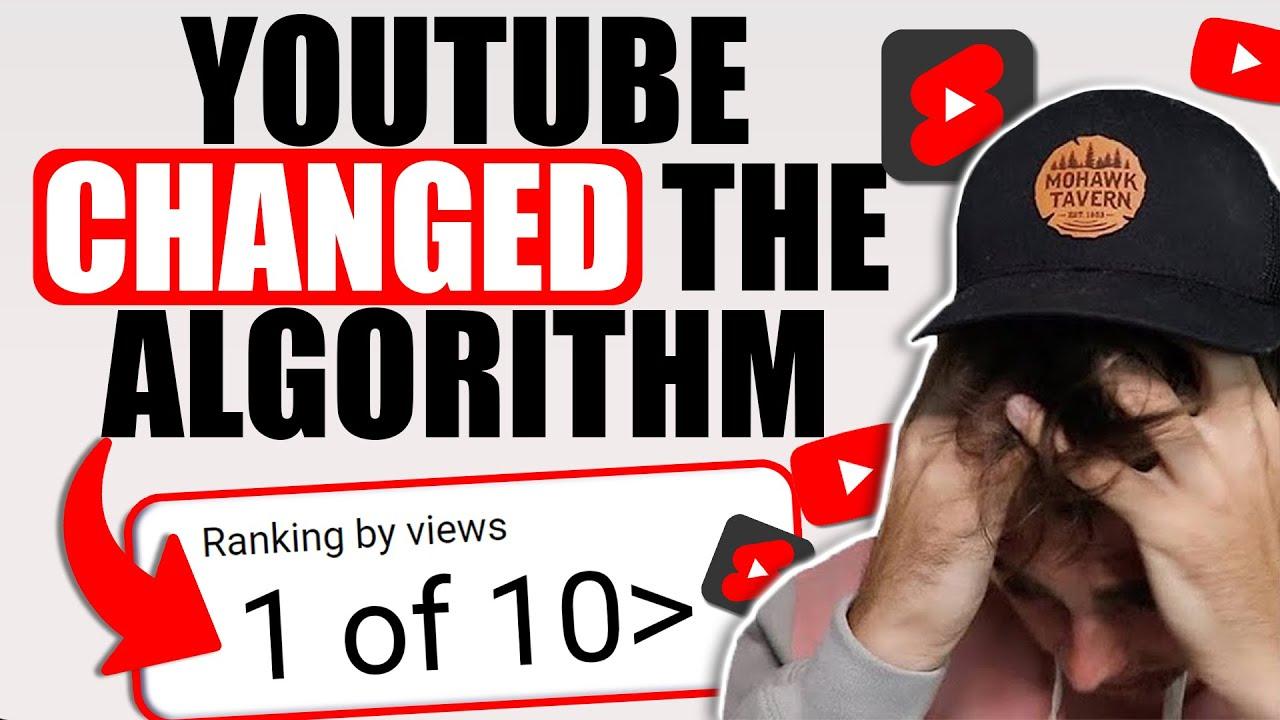
Staying Updated on YouTube Algorithm Changes
To maintain a competitive edge on YouTube, it’s crucial to stay informed about the platform’s ever-evolving algorithm. Changes can impact video visibility, engagement, and ultimately, your channel’s growth. Here are some strategies to ensure you’re always in the loop:
- Follow YouTube Creators Blog: YouTube frequently updates its official blog with insights about new features and algorithm updates. Regular visits can provide firsthand information straight from the source.
- Engage with YouTube Communities: Joining forums and social media groups dedicated to YouTube creators can help you learn from others’ experiences. Platforms like Reddit and Facebook often have discussions about recent changes.
- Attend YouTube Workshops and Webinars: These events are often hosted by experts who provide valuable insights into the platform. They can help you understand how to adjust your strategies in response to algorithm changes.
- Monitor Your Analytics: YouTube Analytics is a powerful tool. Regularly reviewing your performance data can help you identify trends and changes in viewer behavior that may correlate with algorithm updates.
It’s also worth noting that algorithm adjustments often focus on enhancing user experience. Therefore, producing quality content that keeps viewers engaged is essential. Here are some key factors to consider:
| Factor | Importance |
|---|---|
| Watch Time | High |
| Engagement (Likes, Comments, Shares) | Very High |
| Thumbnail & Title Optimization | Moderate |
| Consistency | High |
By focusing on these factors and aligning your content with YouTube’s current best practices, you can better position your videos for success. Remember, the algorithm rewards videos that keep people watching, so prioritize creating engaging content that resonates with your audience.
Lastly, be adaptable. The digital landscape is dynamic, and what works today may not work tomorrow. Stay flexible in your approach and be prepared to pivot your strategies based on new insights and trends. This proactive mindset will not only keep you updated but also ensure your content remains relevant and impactful in the ever-competitive YouTube arena.

Building a Community to Foster Loyal Viewers
Creating a thriving community around your YouTube channel is essential for building a loyal viewer base. When viewers feel like they are part of something larger, they are more likely to return, engage, and share your content. Here are some effective strategies to foster that sense of community:
- Engage with Your Audience: Respond to comments and questions on your videos. When viewers see that you care about their opinions, it makes them feel valued and more connected to your channel.
- Encourage Viewer Interaction: Ask for feedback, suggestions, or opinions. Consider incorporating viewer ideas into your videos. This not only boosts engagement but also gives viewers a sense of ownership in your content.
- Create a Consistent Brand Identity: Use consistent visuals, tone, and messaging across your videos. This helps viewers recognize your content immediately, building familiarity and trust.
- Utilize Social Media: Promote discussions on platforms like Twitter, Instagram, or Facebook. Share behind-the-scenes content, polls, or sneak peeks to keep the conversation going outside of YouTube.
One of the most effective ways to deepen connections is through exclusive content. Consider creating a membership program or utilizing platforms like Patreon. Offering perks, such as early access to videos, exclusive live streams, or personalized shout-outs, can turn casual viewers into devoted fans.
Live streaming is another powerful tool for community building. It provides real-time interaction and makes your audience feel like they are participating in something special. During live sessions, encourage viewers to ask questions, share their thoughts, and interact with each other. This fosters a sense of belonging and encourages loyalty.
| Community Building Tactics | Benefits |
|---|---|
| Engaging with Comments | Builds trust and connection |
| Viewer Polls | Increases engagement and participation |
| Exclusive Content | Creates a sense of membership and loyalty |
| Live Streaming | Encourages real-time interaction |
Don’t forget the power of storytelling. Share your personal journey, the ups and downs of your creative process, and the challenges you face. When viewers see the person behind the content, they are more likely to connect on a personal level, enhancing their loyalty.
Lastly, recognize and celebrate your community. Whether through shout-outs in videos, featuring fan art, or hosting community challenges, showing appreciation for your viewers can transform a simple view into a lasting bond. Remember, a community is built on shared experiences and mutual support.
Frequently Asked Questions (FAQ)
Q&A on YouTube SEO: How to Get Your Videos to the Top of Search Results
Q: What is YouTube SEO, and why is it important?
A: Great question! YouTube SEO refers to the strategies you can use to optimize your videos so they rank higher in YouTube search results and gain more visibility. It’s crucial because, with over 2 billion users, YouTube is the second-largest search engine in the world. Optimizing your content means more views, more engagement, and ultimately, more subscribers!
Q: How do I start optimizing my videos for search?
A: The first step is keyword research. Think about what your target audience is searching for. Use tools like Google Keyword Planner or even YouTube’s search suggestions to find popular search terms related to your video content. Once you have those keywords, you can incorporate them into your video title, description, and tags.
Q: What role does the video title play in SEO?
A: The title is critical! It’s one of the first things viewers—and YouTube—see. Make sure it’s catchy, descriptive, and includes your primary keyword. A well-crafted title can significantly improve your click-through rate, which is a key ranking factor. For example, instead of “My Travel Vlog,” you might use “Exploring the Hidden Gems of Paris – Travel Vlog 2023.”
Q: Should I focus more on the description or the tags?
A: Both are important, but if you have to choose, prioritize the description. YouTube allows up to 5,000 characters, so use that space wisely! Start with a compelling summary that includes your primary keywords, and then add relevant information, links, and calls to action. Tags are helpful, but their impact is less significant than a well-written description.
Q: How does engagement affect my video’s ranking?
A: Engagement is huge! YouTube’s algorithm favors videos that keep viewers watching, liking, commenting, and sharing. Encourage viewers to engage by asking questions or prompting them to leave a comment. The more engagement your video generates, the more likely it is to be promoted in search results and recommended to other users.
Q: Is it essential to create thumbnails for my videos?
A: Absolutely! Thumbnails are like the book cover for your video; they can make or break whether someone decides to click on it. Create eye-catching, high-contrast thumbnails with bold text that gives viewers a hint about the content. A compelling thumbnail can boost your click-through rate dramatically.
Q: How often should I post new content?
A: Consistency is key! Whether you post weekly, bi-weekly, or monthly, stick to a schedule that your audience can rely on. Regular uploads keep your channel active and can help maintain viewer interest. Plus, it tells YouTube that you’re serious about your channel, which can help with rankings.
Q: Are there any tools that can help with YouTube SEO?
A: Definitely! Tools like TubeBuddy and VidIQ are fantastic for optimizing your video’s SEO. They provide insights into tags, keywords, and even competitor analysis. Plus, YouTube Analytics is a treasure trove for understanding how your videos perform and where you can improve.
Q: What’s the biggest mistake I should avoid in YouTube SEO?
A: One of the biggest mistakes is neglecting analytics. Don’t just upload and forget about it! Regularly check your analytics to see what’s working and what’s not. Look for patterns in viewer behavior, and be willing to adjust your strategy accordingly. Ignoring data means missing out on valuable insights that can skyrocket your channel’s growth.
Q: Any final tips for those looking to improve their YouTube SEO?
A: Sure! Always think like your audience. What questions do they have? What problems are they trying to solve? Create valuable content that addresses those needs, and don’t hesitate to experiment! SEO is a journey, not a sprint. Keep learning, adapting, and engaging with your audience, and you’ll see your videos climb the search rankings in no time!
To Wrap It Up
And there you have it! Mastering YouTube SEO might seem daunting at first, but with the right strategies in your toolkit, you can boost your video’s visibility and reach a wider audience than ever before. Remember, it’s all about understanding your audience, optimizing your content, and staying consistent. So go ahead and implement these tips—start optimizing your titles, crafting engaging descriptions, and using those tags wisely.
The YouTube landscape is ever-evolving, but the fundamentals of SEO remain crucial. By putting in the effort now, you’re not just creating videos; you’re building a community and establishing your brand. So, get out there, make that content shine, and watch your channel grow! Don’t forget to keep experimenting and learning. After all, the sky’s the limit when it comes to your creative potential on YouTube. Happy filming!


